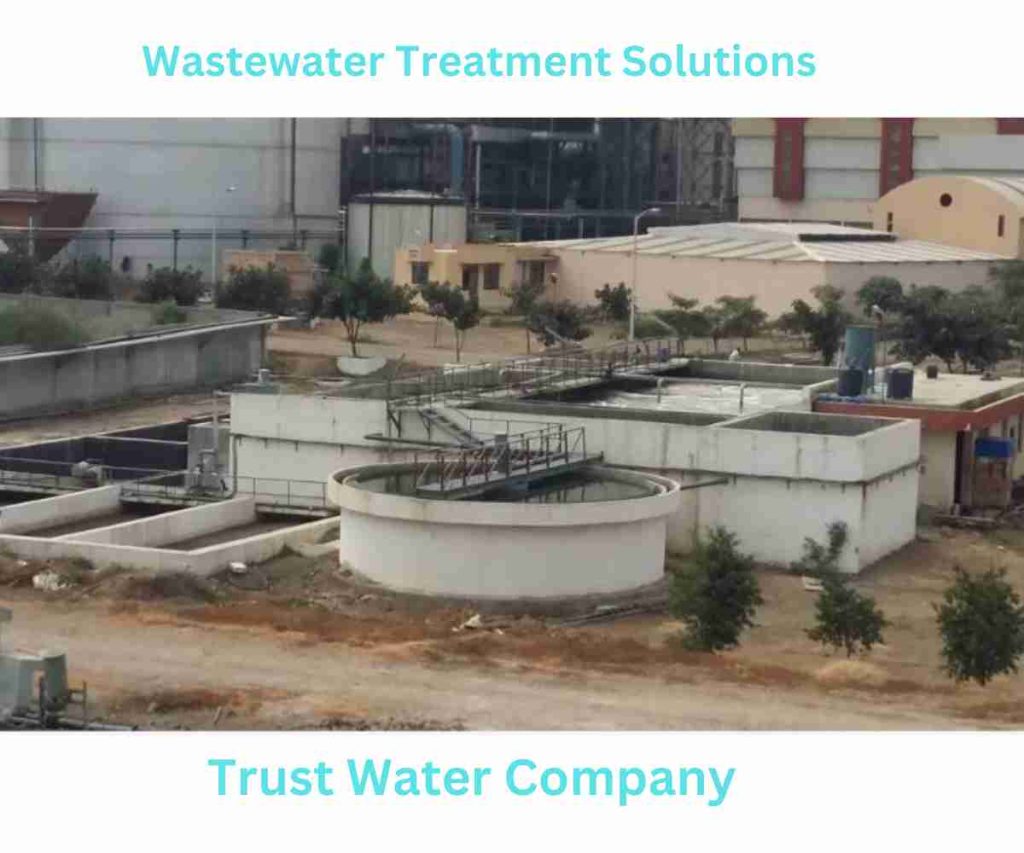Wastewater Treatment Solutions in Dhaka, Bangladesh in 2024
In the bustling city of Dhaka, Bangladesh, the need for efficient and effective wastewater treatment solutions has never been more critical. As industries and urban areas expand, the challenge of managing industrial wastewater and maintaining water quality intensifies. Trust Water Company stands as the leading and most reliable wastewater treatment plant manufacturer and supplier in Bangladesh, dedicated to addressing these challenges head-on.

The Importance of Wastewater Treatment
Wastewater treatment is essential for maintaining environmental sustainability and public health. Effective treatment processes ensure that harmful pollutants are removed from water before it is discharged into natural water bodies. This not only prevents water pollution but also protects aquatic ecosystems and human health. In Dhaka, where rapid industrialization and urbanization are prevalent, robust wastewater treatment solutions are vital.
Industrial Wastewater Treatment in Bangladesh
Industrial activities in Bangladesh, particularly in the textile, food processing, and tannery sectors, generate significant amounts of wastewater. This wastewater often contains a variety of contaminants, including chemicals, heavy metals, and organic matter. To manage this, industries rely on various effluent treatment plants (ETPs) to treat and purify the water before it is released into the environment.
Textile Industry Effluent Treatment
The textile industry is one of the largest contributors to industrial wastewater in Bangladesh. Effluent from textile factories is typically high in dyes, chemicals, and other pollutants. To address this, advanced ETPs equipped with technologies like membrane filtration, chemical precipitation, and biological treatment are employed. These technologies help in effectively reducing the pollutant load and ensuring compliance with environmental regulations.
Food Processing Effluent Treatment
The food processing industry also generates wastewater that requires careful treatment. This effluent often contains organic waste, fats, oils, and grease. ETPs for food processing plants use a combination of biological treatment and chemical treatments to break down organic matter and remove contaminants, ensuring that the treated water meets the required standards.
ETP for Tanneries
Tanneries produce wastewater rich in heavy metals and organic pollutants. Specialized ETPs for tanneries utilize techniques such as chemical precipitation and advanced oxidation processes to treat the effluent. Proper treatment of tannery effluent is crucial to prevent environmental degradation and protect public health.
Government Regulations and Standards
The Government of Bangladesh has implemented stringent regulations on effluent discharge to control water pollution. Industries are required to comply with these regulations to avoid penalties and ensure environmental sustainability. The standards set by the government specify the permissible limits for various contaminants in the treated effluent. Compliance with these standards is achieved through regular monitoring and upgrading of ETPs.
Effluent Discharge Standards
Effluent discharge standards in Bangladesh are designed to protect water bodies from pollution. These standards dictate the maximum allowable concentrations of pollutants such as biochemical oxygen demand (BOD), chemical oxygen demand (COD), and total suspended solids (TSS) in the treated effluent. Industries must ensure their ETPs are capable of meeting these standards consistently.
Environmental Compliance
Environmental compliance is a critical aspect of industrial operations in Bangladesh. Industries must obtain necessary permits and undergo regular inspections to ensure their wastewater treatment processes are effective. Non-compliance can result in severe penalties, including fines and suspension of operations. Trust Water Company assists industries in achieving and maintaining compliance through state-of-the-art ETP solutions and ongoing support.
Challenges in Wastewater Treatment
Despite the advancements in technology, wastewater treatment in Bangladesh faces several challenges. These include the high cost of setting up and maintaining ETPs, lack of awareness and expertise, and inadequate infrastructure. Addressing these challenges requires a collaborative effort between the government, industries, and technology providers.
High Cost of Effluent Treatment Plants
The initial investment and operational costs of ETPs can be substantial, making it difficult for small and medium-sized enterprises to afford them. However, Trust Water Company offers cost-effective ETP solutions tailored to the needs of different industries, ensuring that even smaller businesses can implement effective wastewater treatment.
Lack of Awareness and Expertise
Many industries lack the necessary knowledge and expertise to operate ETPs efficiently. Training programs and workshops conducted by Trust Water Company help bridge this gap, providing industry professionals with the skills and knowledge needed to manage their wastewater treatment processes effectively.
Inadequate Infrastructure
In some regions, inadequate infrastructure poses a significant barrier to effective wastewater treatment. Ensuring that all areas have access to reliable and efficient ETPs is essential for comprehensive water pollution control. Trust Water Company is committed to expanding its reach and providing high-quality wastewater treatment solutions across Bangladesh.
Benefits of Effluent Treatment Plants
Investing in ETPs offers numerous benefits for industries and the environment. These include improved water quality, reduced environmental impact, and enhanced regulatory compliance. Additionally, treated water can be reused in industrial processes, reducing the overall demand for fresh water.
Improved Water Quality
ETPs play a crucial role in improving water quality by removing harmful pollutants from wastewater. This ensures that the water discharged into the environment is safe and meets regulatory standards. Improved water quality benefits aquatic ecosystems and reduces the risk of waterborne diseases.
Reduced Environmental Impact
By treating industrial effluent before discharge, ETPs help minimize the environmental impact of industrial activities. This includes reducing the pollution load on natural water bodies and preventing the degradation of ecosystems. Sustainable wastewater treatment practices contribute to overall environmental conservation.
Enhanced Regulatory Compliance
Compliance with environmental regulations is essential for industrial operations. ETPs help industries meet the required standards for effluent discharge, avoiding penalties and ensuring smooth operations. Trust Water Company provides solutions that are designed to meet and exceed regulatory requirements, ensuring long-term compliance.
Types of Effluent Treatment Plants
There are various types of ETPs used in Bangladesh, each designed to address specific types of wastewater and treatment requirements. These include biological treatment plants, chemical treatment plants, and physical treatment plants. The choice of ETP depends on the nature and composition of the wastewater to be treated.
Biological Treatment Plants
Biological treatment plants use microorganisms to break down organic pollutants in wastewater. This process is highly effective for treating effluent with high levels of organic matter, such as that from the food processing industry. Biological treatment is a cost-effective and sustainable solution for many types of industrial wastewater.
Chemical Treatment Plants
Chemical treatment plants use chemicals to remove contaminants from wastewater. This includes processes such as chemical precipitation, coagulation, and flocculation. These plants are suitable for treating wastewater containing heavy metals and other inorganic pollutants.
Physical Treatment Plants
Physical treatment plants employ physical processes such as filtration, sedimentation, and membrane filtration to remove solids and other impurities from wastewater. These plants are often used in conjunction with biological and chemical treatment methods for comprehensive wastewater treatment.
The Future of WWTP
As Dhaka continues to grow and industrialize, the need for effective wastewater treatment solutions becomes increasingly critical. Trust Water Company is dedicated to providing the best and most reliable wastewater treatment plants in Bangladesh. By leveraging advanced technologies and offering cost-effective solutions, Trust Water Company helps industries meet regulatory requirements, protect the environment, and ensure sustainable operations.
Investing in robust wastewater treatment infrastructure not only benefits industries but also contributes to the overall well-being of communities and the environment. With ongoing support and innovative solutions, Trust Water Company is committed to leading the way in wastewater treatment in Dhaka, Bangladesh, in 2024 and beyond.
